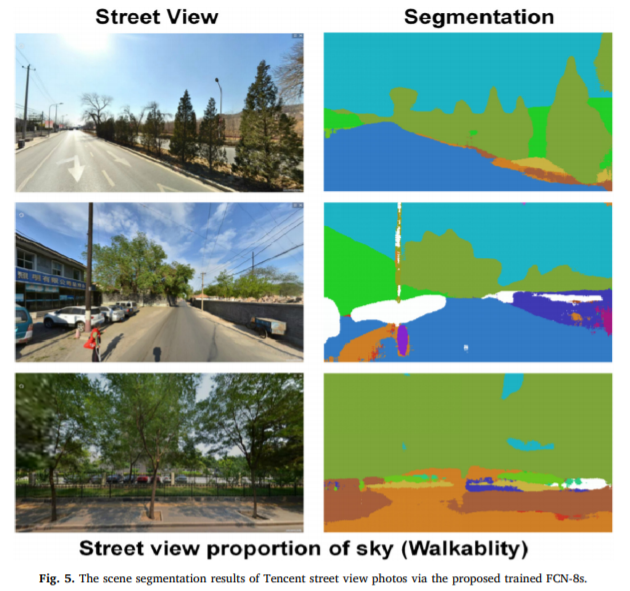ABSTRAT
Background: Neighbourhood walkability has been consistently associated with more physical activities in adults. Nevertheless, evidence of a beneficial association between walkability and older adults’ mental health is still scarce in developing countries. Furthermore, walkability was often measured through Geographic Information System (GIS) methods. Recently, the methodological development in street view images, such as using Google or Tencent Street View, has offered an attractive alternative. Methods: Using Tencent street view images and machine learning classification methods, we quantify visual enclosure for neighbourhood street walkability with the proportion of visible sky in those images. Depression and anxiety data were extracted from mental health surveys for 1231 older adults in Beijing, China in 2011. Multilevel linear regression models were used to assess the associations. Results: Street walkability was negatively associated with Geriatric Depression Scale scores (GDS 15-item) and Geriatric Anxiety Inventory scores (GAI 20-item), and the results of different robustness checks also support this relationship. The associations were stronger for disadvantaged older adults than others. Conclusion: The present study indicates a potential beneficial role of street walkability on mental health (depression and anxiety) in older residents, especially for disadvantaged older adults. Additional longitudinal studies are required to address some limitations of this study, such as residential self-selection bias

Q.E.D.









